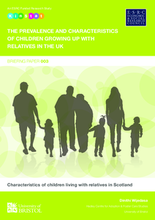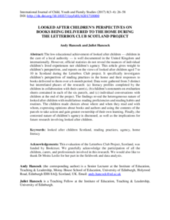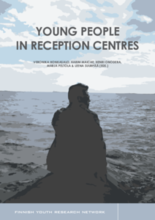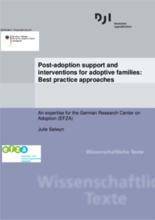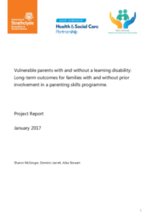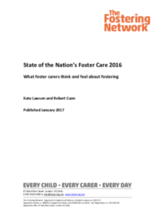

Displaying 1291 - 1300 of 1649
This briefing paper, which is the third in a series, provides a brief overview of the characteristics of the children growing up with relatives in Scotland.
This article gives weight to children’s perspectives, and reports on the views of looked after children aged 7 to 10 in Scotland during the Letterbox Club project.
The article collection 'Young people in reception centres' presents how the young people applying for asylum in Finland and the people working with them experience the first few months that follow a young person’s arrival in Finland.
This article explores the implications of austerity for professional child and family social workers in the UK.
This rapid literature review was commissioned by the German Research Centre on Adoption (EFZA) located at the German Youth Institute in Munich (Germany). The overall aim of the review was to consider the support needs of domestic and intercountry adoptive families and the evidence for effective interventions. Step-parent, relative and domestic private adoptions were excluded.
Families including a parent or parents with a learning disability can often have complex needs linked to issues such as poverty and mental health, and are known to be overrepresented in child care proceedings. Previous local project work with 12 families had demonstrated the potential of providing intensive support to parents with a learning disability, as well as others without a learning disability who were vulnerable for other reasons. A follow-up project 16 years later sought to re-engage with those families in order to explore their outcomes.
Key findings on the state of the United Kingdom’s foster care system by The Fostering Network note that although most foster carers say they want to continue caring for children, only 55% say that they would recommend it to others.
Dozens of children are seeking a judicial review in the UK High Court early next year.
This article from The New York Times states that shelters face problems of abuse, arson, rape,and sexual molestation.
This video from The Guardian discusses how six weeks after the Calais migrant camp was demolished, unaccompanied minors were transferred around France and are still waiting to hear from the Home Office.

